Mark Gatiss is probably best known as a member of The League of Gentlemen, and as the co-creator and executive producer of the BBC’s Sherlock, in which he played Mycroft Holmes. But having created and written for various hit TV series (including the current Bookish and Doctor Who) and several books (including a biography of James Whale, and The Vesuvius Club, his first Lucifer Box novel), he is also one of the 21st century’s most successful British working-class writers.
He may sometimes be taken for a middle-class Oxbridge graduate (see below), but Gatiss grew up in a working-class family in the north-east of England, and is a champion of working-class talent, which he believes is being denied a fair chance in the arts. As this is a point on which we very much agree, he met up with Bee in London to talk about his childhood, family and work, his advice for writers, Bookish – and the life-changing phenomenon that was Terrance Dicks’ Doctor Who novels.
Richard Benson: Can we start by talking about you at school? Readers may know that at junior school you wrote a story about a “noise machine” that was printed as a booklet by Darlington Council, and then a story about the tennis at Wimbledon that impressed your teachers. Were you always interested in writing?
Mark Gatiss: Well, when I was very young I was in Mrs Wiggington’s advanced reading group. I got a house point for being able to pronounce “subterranean” when I was five. And I always loved English composition, and I always loved horror stories – I’ve still got a school report on which I got A+, and it said, “excellent work, even if it does all resemble scripts for Hammer Horror films”. That’s my proudest review.
Then I wrote the thing about Wimbledon, and they were endlessly encouraging after that.
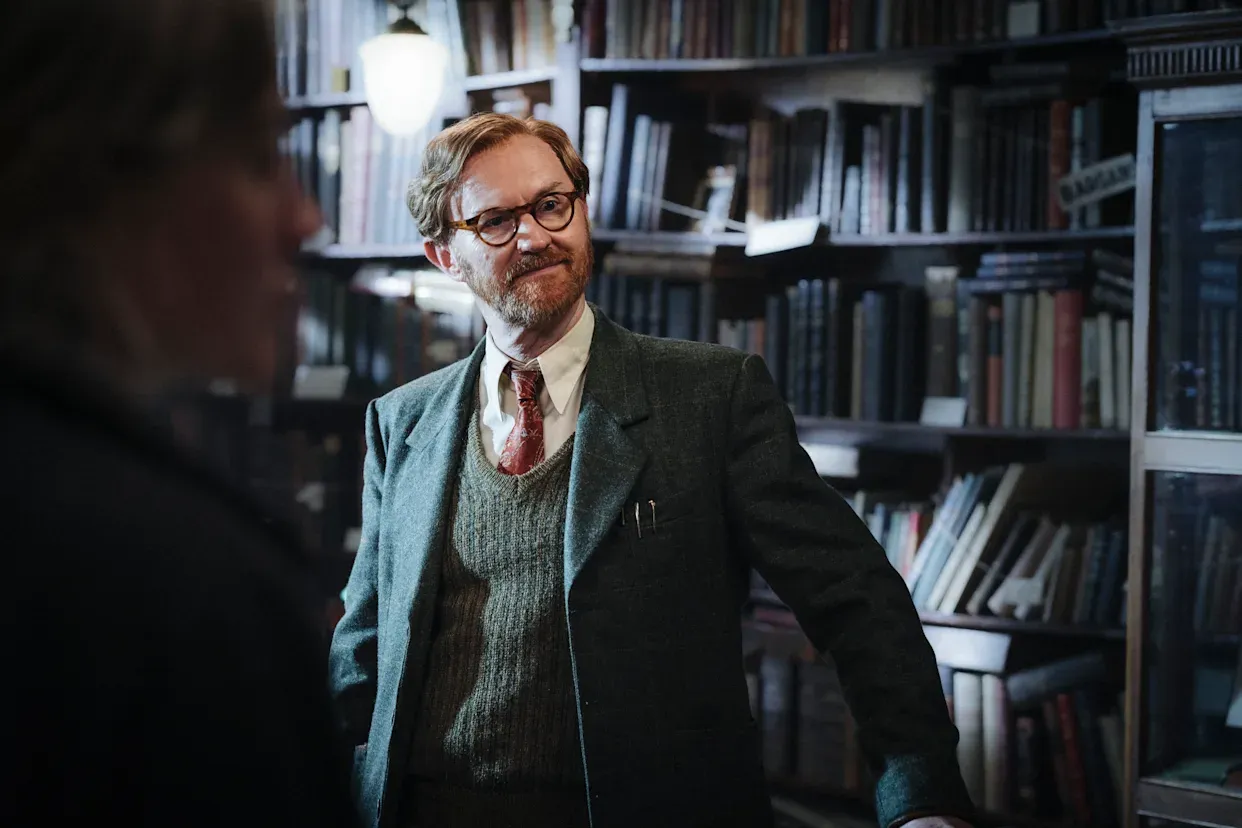
RB: You were from a working-class family – was there anything in your background that foretold such talent?
MG: No, but you know, it wasn't like Sons and Lovers. My dad was a colliery engineer and then a hospital engineer, but there wasn't [ironic tone] “the fear of book larnin’”.
My parents worked from the age of 14, and had come through the aftermath of the war. My mum worked as a secretary in a paint factory, and she hated her job. I'm not sure why, but it was terribly stressful. One Friday night when I was young she eventually said, it’s going to put me in an early grave, I’ve got to stop – and my dad vociferously argued against it, because we'd only have a single wage.
And I remember hearing the deadly words from him as he went upstairs: “Right, there's going to be some changes in this house.” And I went absolutely cold, thinking I'd be down the pit the next day. Of course, absolutely nothing changed.
RB: Were your parents readers?
My dad in particular was a voracious reader all his life. He used to say [adopts broad north-east accent] “I like being taken out of myself, Mark”. We had a bookcase – that’s what we always called it, The Bookcase – and it was full of my dad's books, which were Ian Fleming, Dennis Wheatley, Hammond Innes, Alastair MacLean – adventure books, spy stories and stuff like that. He always loved books like that, and I read them as soon as I could. I still love those things so much.
RB: Was it them that got you started?
MG: No, the thing that taught me how to read was Doctor Who, because the stories were novelised mostly by an amazing man called Terrance Dicks.
Doctor Who was my favourite show. I watched it because my dad and brother loved it. The first one I saw was Jon Pertwee’s first episode, and I can still remember it, sitting in front of the TV and seeing these shop window dummies coming to life, which traumatised me forever. I was instantly and totally hooked.
Then one hot Saturday afternoon I went to Strikes Garden Centre in Darlington with my mum and dad, and there was a display of Doctor Who novels next to the plants. I got The Three Doctors, and I sat in the hot car and read it cover to cover while my parents were in the garden centre. I read so many of those novels after that and I learnt so much from reading them, so much. They had words that I’ve never used or even seen used anywhere else, like “capacious”.
They were published by Target Books. You could talk to anyone of my age who grew up with them, and they’d tell you the same story. They were everywhere – Binns in Darlington, WHSmith, Dressers [a department store] – so there was something wonderfully democratic about them. We weren’t a bookish household, it wasn’t a bookish world, but that was a way of smuggling it in, in a way, without us even knowing it.
RB: What do you think it was about them that appealed to you?
MG: Whatever it is magic is, you can’t really define it. Doctor Who is a strange combination of science fiction and whimsy and literary roots. There’s a lot of Sherlock Holmes in it, a lot of HG Wells in it – it’s a wonderful combination of things. Plus it was a TV original. But you can’t really analyse it. Some things just work.
The other one I really cherished was one called The Making of Doctor Who. It was a slim book, a sort of kids’ way of looking at how a TV show is put together. I read that hundreds of times because I was so interested in the process.
RB: So were they your first books?
MG: No, the very first book I ever had was Great Expectations, which was a Christmas gift from Santa Claus at Fenwick’s in Newcastle. I didn’t read it for quite a long time, but when I did, it blew my mind, because of the twist. And that was a genuinely formative moment – I remember just, like, jaw-dropping moment. The other books I really loved were the Willard Price adventure books. My brother and I absolutely loved that.
RB: Doctor Who, being science fiction, is classed as “genre” TV, and as a writer and actor you’ve worked a lot in genre – sci-fi, crime, fantasy, thrillers. These are still looked down on by what you might call the publishing and critical establishment. How do you feel about that? Do you notice a snobbery?
MG: Well it never ceases to amaze me that these things are still somehow regarded as “cult” when they’re literally the predominant popular art form in the whole fucking world. It’s extraordinary. Of course there’s snobbery. There’s particular snobbery about comedy that has always been there and always will be. Never wins the Best Picture Oscar. A comic play isn’t allowed to be as good as some searing three-hour Eugene O’Neill drama. Yet it’s the thing that people love the most and really want.
Sometimes when I see a snotty sneer in a review, I want to say, “YOU do it then. You have a go. You make this room of 700 people laugh.” It’s really difficult.
The only thing that still really gets me excited is that snobbery. I can’t bear it. It’s as if we’re all living in a sort of priestly conclave which doesn’t like laughs. All right, some people don’t like laughs, but they’re not people you want to hang around with. Comedy is the big one, as far as snobbery goes. Horror has always been déclassé, but so it should be, because its disreputability is half its charm.
RB: Who gets to decide what constitutes a “classic” and a “literary” work is an interesting question –
MG: I’ve forgotten who wrote this [We think it was Andrew Motion], but someone made the point that something happened whereby all the great classics were in the hands of the population, and they had to be downgraded into children’s classics. And then after that, literary stuff became hyper-literary.
I think there’s something really odd going on there about a basic human failure to understand what we’re all like, and how popular work doesn’t have to be dumb, and ideas don’t have to be spelt out. You can have a really good time in the movies, on the page, in a concert hall, without feeling that you’re somehow just part of some great unwashed rabble.
RB: Do you see class operating there?
MG: I think class remains one of the biggest barriers, it really does. We don’t really talk about it. It was one of those things that we thought we had kind of got through. We were getting through it for a while. I think of my great hero Alan Bennett – his journey would have been impossible without the scholarship to Oxford. Those avenues have narrowed to the point of strangulation, and I really fear for it. All I can say is I just want to do whatever I can to try and help people from my kind of background to find a way through. It’s all about representation. It’s about seeing people like you who have done it.
RB: Has that class snobbery affected you personally?
MG: Not so much, except in a sort of weird inverse way, in that people assume I went to Oxford. At the beginning of The League of Gentlemen, even though the show was absolutely, defiantly northern, they thought we were like the Cambridge Footlights. One in Time Out said, “Why should I care about three posh Billy Bunters from Oxford?” A cursory investigation would have revealed we were all from the north and from defiantly working-class backgrounds. But there’s an expectation that if you’ve done well, in entertainment particularly, you know… “which college did you go to?” – meaning which college in Oxford. I’ve had that a few times. I enjoy saying “Woodham Comprehensive School”.
RB: Was there a moment when you thought, “I want to be a writer”?
MG: That’s very different to thinking it might actually happen. I always used to say I wanted to be an actor, and I wanted to write, but what version of writing I had in mind I’m not sure. I used to dream about writing sitcoms or films or whatever, but there’s a big gulf between hope, expectation and result. I do remember once having to write a poem as homework for [secondary] school, and doing it very quickly, and getting an A. That was a moment of thinking, “Maybe I’ve got a facility here… maybe I can do something with this.”
In Bookish, in the edit, there were certain things that needed a bit of tying together, and I ended up writing three poems, which I do in voiceover in the recorded show. And I remember thinking, this is just a version of writing that poem at school.
RB: Do you write quickly now?
MG: If the fit is on me, yes, I can write very quickly. If it’s really flowing, then it comes to me quickly, but then, of course, there are horrible, aching voids when it doesn’t come at all.
I have routines, which everyone has, but they’re not fixed. If I’m working on something, I try to write 1000 words a day because that’s an achievable goal. It means if you get it done by ten o’clock, you can guiltlessly enjoy the rest of the day. And sometimes, if you do 3000, you can have two days off. But that rarely happens.
I’ve been writing series two of Bookish solidly since before Christmas. And it’s all about refining and writing some of it with Matthew [Sweet, co-writer], back and forth, and then bringing it all together, and then writing bridging scenes. This is where Doctor Who has been hugely useful over the years, because I know from my very early knowledge of Doctor Who what the producer and script editor do.
RB: “Writing” tends to be depicted as the solitary, first-draft phase, but you must find much of the creative process comes after that?
MG: Writing is rewriting, isn’t it? That’s the fun bit, because at least you’ve got something to work with. It’s the blank page which is the terrible thing.
RB: What do you do when you’re stuck?
MG: Just staring into space doesn’t help. What I’ve learnt to do is try and surprise myself. I just do something different, and it usually throws up some answer. Also, sometimes a problem shared is a problem solved. You ring someone up and start telling them the issue, and I often find, as I’m saying it, something occurs to me. It’s really weird.
The advice I always give is, there’s no such thing as a would-be writer. If you want to write something, you can do it right now. It doesn’t mean it’ll be great. It doesn’t mean you’ll be immune from self-doubt. You don’t even have to show it to anyone. But you can do it right, right away. There are very few things you can say that about.
RB: Bookish has been well received, and of course you’ve been very successful. But like everyone, in the past you’ve had ideas rejected. How do you cope with rejection?
MG: Sanguinely, I suppose. I’ve been very blessed, but luck plays a huge part. I was talking to someone at a party on a Saturday night who said, whenever you see those life coaching things, no one ever talks about luck. You can’t factor that in. There’s loads of incredibly talented people who have never had the luck. But that’s life. Life stinks.
What you can do, practically, is turn up. If you get an opportunity, join the dots. If someone likes your work, or does you a favour, keep in touch. Drop them a line. Drop them a card. Write them a letter. It sounds basic, but a lot of people don’t do it. My friend John Castle, a great actor, said the best advice he’s ever known was written on the doors at RADA: Push. That doesn’t mean you have to be aggressive, just remember 90% of anything is turning up. And I know it’s hard if you’re getting rejection after rejection after rejection. But persistence is hugely key to it.
RB: Television is a notoriously difficult industry to penetrate…
MG: Television is complicated because there’s a lot of gatekeeping. It’s a bit like music – you need to sort of get to the A&R people to get the contact to get there. And they have a lot of power. I spent years throwing rocks at that, on radio particularly, trying to get a way in and just getting nowhere. And it always seemed to be the same sort of people who were saying no.
It’s also difficult because inevitably, people follow trends and they’re afraid of putting their money where their mouth is because it’s expensive. So, you know, everyone will be saying “Family viewing is dead”, then Doctor Who comes back, and family viewing is very much alive. “Why don’t we do more family viewing?” And you start to get new shows trying to capture that. Or, “There are no watercooler moments anymore.” Then The Traitors happens.
It always frustrates me that if you have a big hit like Miranda, suddenly all comedy has to be physical and people falling over. It’s like all or nothing. It’s so counterproductive.
These lessons just go round in a circle. And you can guarantee whatever is dead today is tomorrow’s new hit. Follow the trends.
RB: So the real secret is to have that strong, original idea?
MG: Absolutely. It is exactly that. The idea is the thing.
RB: How do you see comedy right now?
MG: British TV comedy is in crisis. Not because there isn’t great stuff, but because there’s no commitment to it. All we ever bang on about in this country is “Where’s the new Dad’s Army?” Why is no one making it? When we did The League of Gentlemen, BBC Two had an unrivalled worldwide reputation for comedy. And it’s all dissipated.
That’s not the BBC’s fault, though – it’s just the way that the broadcasting environment is fractured. But this is the sort of thing we should be hanging on to, because it is genuine soft power. It’s one of the things Britain still does very well. It’s an amazing thing, and we absolutely lose it at our peril.
RB: Looking back on your career, what would you say are the advantages that being working class has given you as a writer?
MG: That’s a great question. I mean, it’s really… it’s about perspective, isn’t it? It sounds like a terrible cliché to say, but I feel grounded by it.
I mean… I remember going on school trips and opening my Tupperware box and there were two corned beef sandwiches in clingfilm and a Club biscuit and an apple. And there was always a kid – many kids – who would open their picnic hampers, and I used to feel ashamed. I still remember that feeling. But not long before she died, I talked to my mum and she said, “I know we were very careful, but we were just so frightened of getting into debt.” And I said, well, thank God you were. And, you know, I still feel that weird burning shame, but I know what was offsetting it. And that’s a really good thing.
I don’t want to be pejorative about someone who happened to be born in a very upper-middle-class background, because it’s not a competition in that way. But one advantage is definitely a grounding.
It’s really good to know where you come from, and to feel that earthing, and to appreciate stuff, you know? I may be romanticising, but… I never had a sort of false romance about a world beyond mine. I wanted it, and I wanted to be on the telly, and I wanted to fly the Tardis, and I wanted to be my own detective. But I knew where I was coming from, and I knew it wasn’t something that would fall into my lap.
Bookish is on U&Alibi in the UK and HBO Max in Australia.
Photo: Bertie Watson
All donations go towards supporting the Bee’s mission to nurture, publish promote and pay for the best new working-class writing.


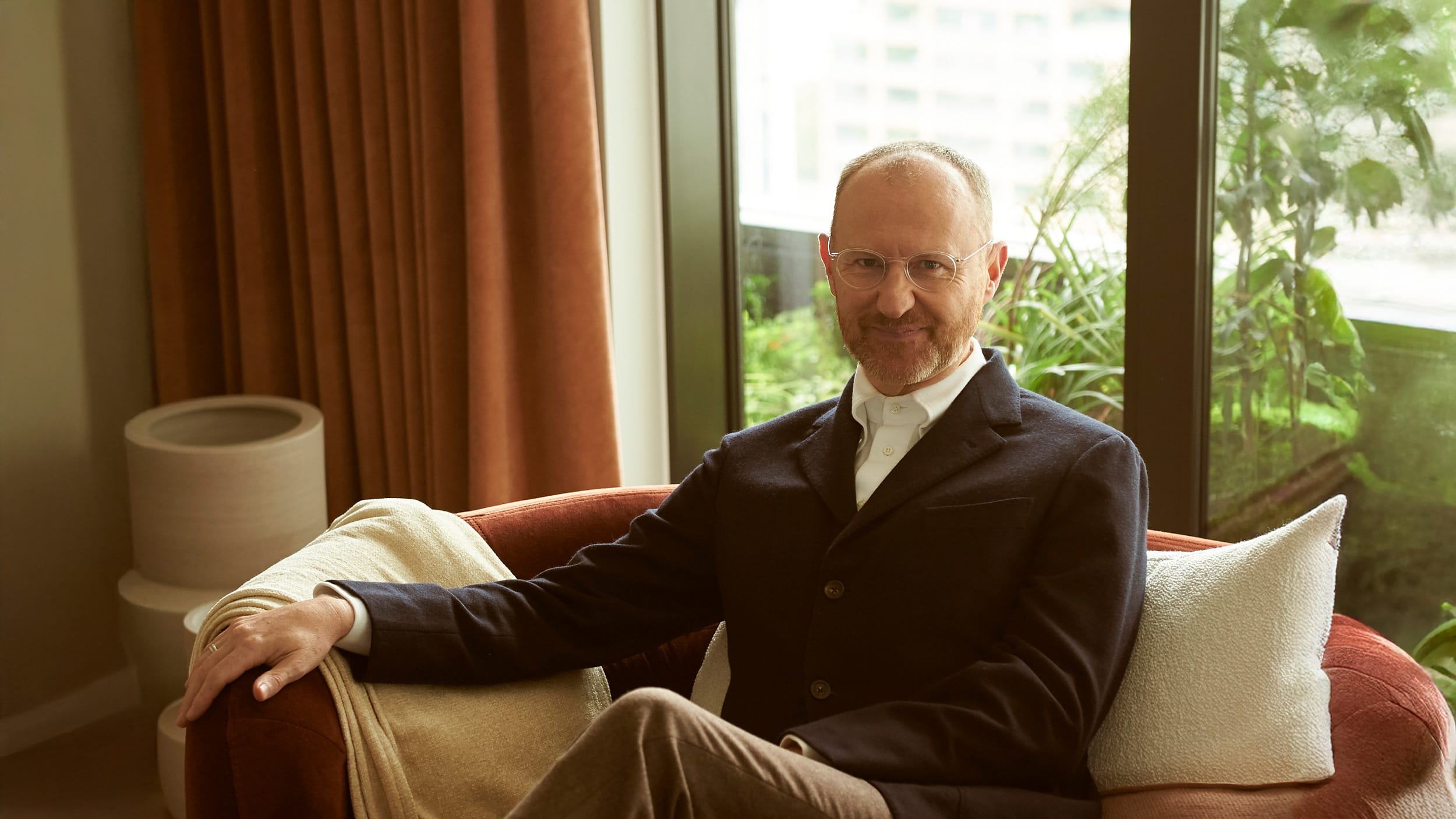
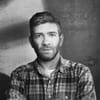
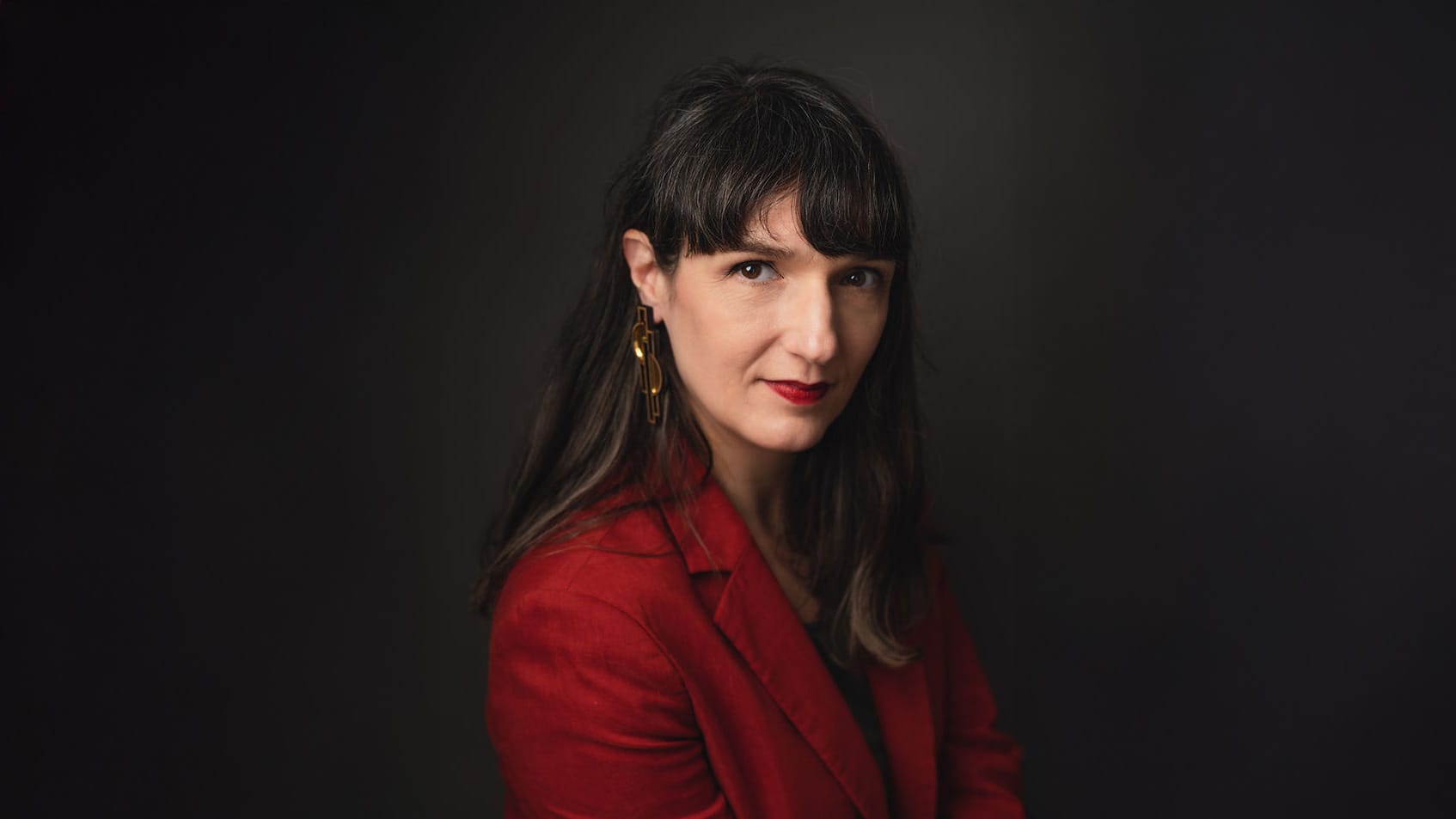

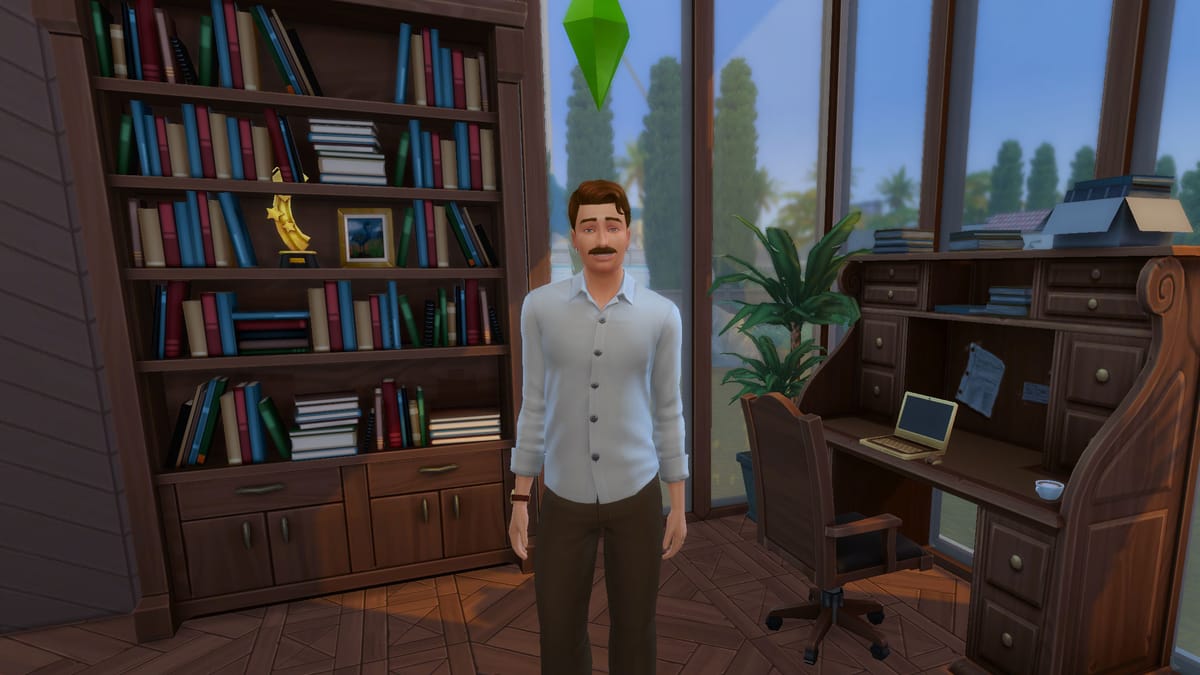


Comments